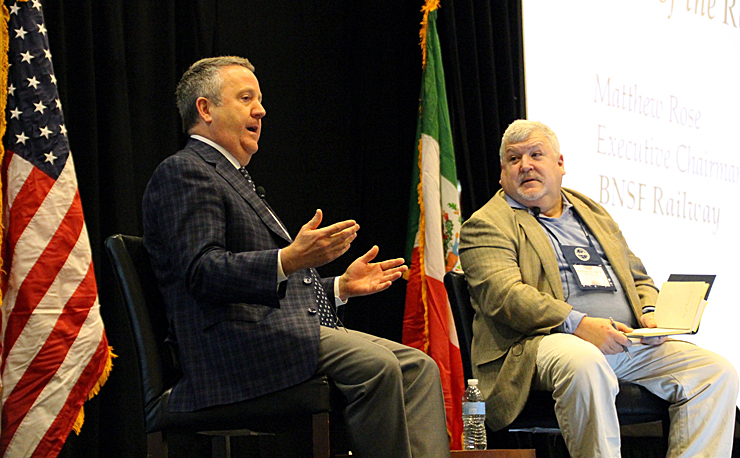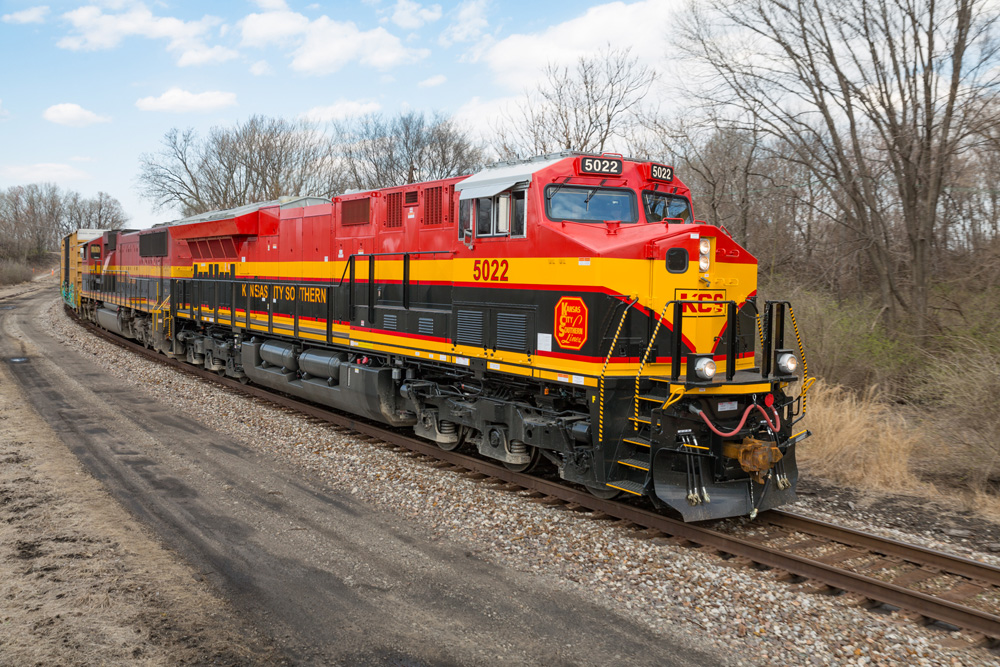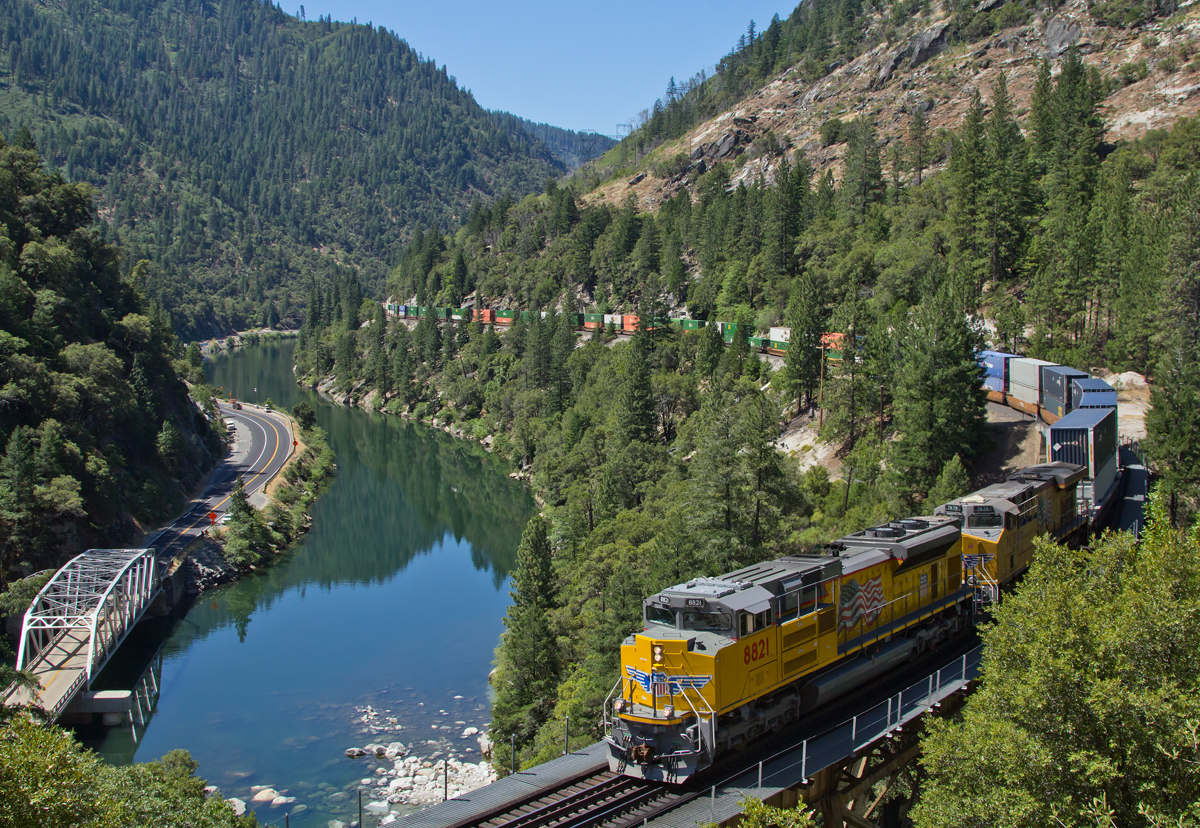Lots.
As part of a long-ranging conversation with independent rail analyst Anthony B. Hatch at the Midwest Association of Rail Shippers winter conference near Chicago on Wednesday, Rose again ripped into Precision Scheduled Railroading and offered up a challenge to railroaders to adopt more automation to compete with trucking.
But BNSF’s executive chairman also had time for other important topics, from quarterly earnings to coal:
— As he has previously, Rose noted BNSF’s good fortune in being privately held, and therefore not subject to Wall Street’s focused on quarterly earnings.
“These are long-cycle, long-lived-asset businesses,” he says. “And if anybody is really thinking the game here is the quarter, I think they’re misguided.”
He also added that he thinks the measure Wall Street uses to analyze capital expenditures as a percent of revenue “is quite inappropriate.”
The better measure, he said, is capital per gross ton-miles.
“It’s capital as a percent of your utilization of assets. It’s not capital as a percent of revenue. I mean, to make your capital as a percent of revenue look great, all you’ve got to do is raise your prices a lot more. … The Street knows that. It’s just easy for them to look at capital as a percent of revenue.”
— Projecting ahead 20 years, Rose foresees that coal “literally could be extinct;” agriculture will remain where it is, and intermodal traffic will continue to grow.
“The carload [traffic] is really the big question,” he said. “And the question will be whether the railroads will find the right service and cost offering to continue to promulgate the carload network that makes sense for you, our shippers, to utilize. Or will you end up changing your supply chains … will you end up changing your distribution patterns, for this carload networks?”
— Rose also expanded on thoughts he’d had at a Florida conference about the unlikely prospects for a major rail merger. There, he touched on the financial barriers; here, he went into more detail on the regulatory hurdles.
“When BN and Santa Fe merged, there were literally no environmental considerations,” he said. “When the UP and SP merged, there were some modest environmental considerations. When Conrail split apart and merged with NS and CSX, there were some environmental considerations about rerouting traffic around towns, and some remediation. But it was still, in the size of those market caps, kind of child’s play.
“When the CN bought the [Elgin, Joliet & Eastern], the board ruled that there had to be three overpasses built, to the tune of $175 million, all within a 5-mile area.” Then-CN CEO Hunter Harrison sued to stop that requirement, and lost. “Dick Durbin [U.S. Senator, D-Ill.] was so mad at him that he literally put a bill in that said all future mergers would have societal impacts — train traffic, rerouting all the stuff — as a consideration with the STB. When you start talking about today’s society, rerouting trains is going to be a huge issue.”
More information on the conference is available online.















It is the only mode of transportation without truly a transcontinental railroad under one flag other than Amtrak. Many more intermediate markets could make sense if mergers between the east and western railroads otherwise the traffic remains on the highways. Some domestic transportation policy.
Wanna guess why Matt quit?
As always, Matt Rose is spot on. I’ll go beyond, him, though. He had to hold his tongue. I don’t. The conditions put on CN’s purchase of EJ&E were a disgrace.
Noise walls? If the locality wants noise walls, build them and maintain them yourself, on land (fee simple or easement) that you purchase from the railroad or the neighbors. The railroad was there first. How many trains the railroad runs on any given track is up to the railroad. The NIMBYs should have zero say in the matter. The railroad doesn’t tell the neighbors how many children they can have or how often they can swim in their backyard pool. The neighbors have no business telling the railroad how many trains they can run on their own tracks.
So Durbin puts even more conditions on railroad mergers. Durbin is so typical of Washington, both parties somewhat but in the main his own. This nation has become ungovernable.
I think his outlook on mergers is scare tactics, obviously because the BNSF wants no part of a merger, and if one of the other lines merges, they will be forced to act. I think all the regulatory issues can be worked out without giving away the farm. The politicians are only trying to look good and “look out” for their public, which half of them are but the other half could care less